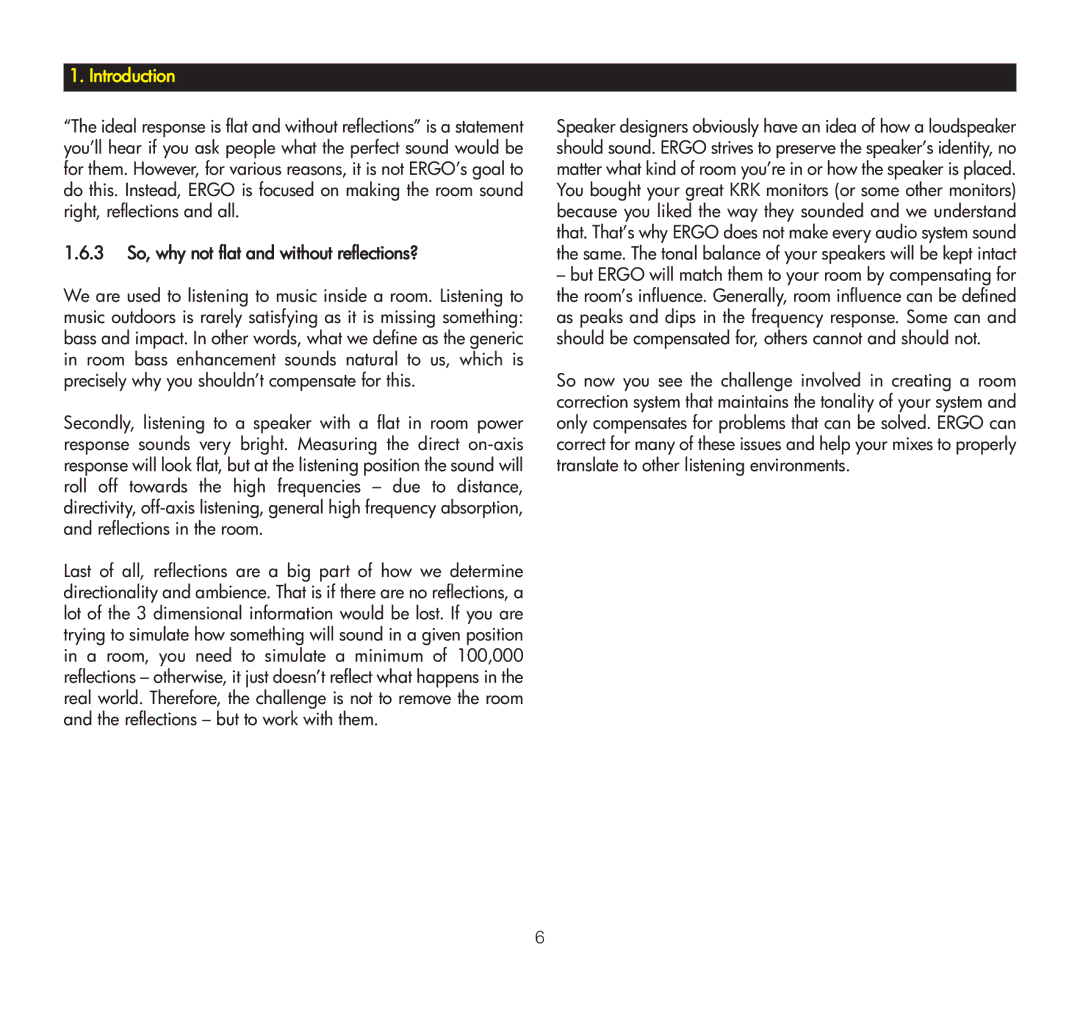1. Introduction
“The ideal response is flat and without reflections” is a statement you’ll hear if you ask people what the perfect sound would be for them. However, for various reasons, it is not ERGO’s goal to do this. Instead, ERGO is focused on making the room sound right, reflections and all.
1.6.3So, why not flat and without reflections?
We are used to listening to music inside a room. Listening to music outdoors is rarely satisfying as it is missing something: bass and impact. In other words, what we define as the generic in room bass enhancement sounds natural to us, which is precisely why you shouldn’t compensate for this.
Secondly, listening to a speaker with a flat in room power response sounds very bright. Measuring the direct
Last of all, reflections are a big part of how we determine directionality and ambience. That is if there are no reflections, a lot of the 3 dimensional information would be lost. If you are trying to simulate how something will sound in a given position in a room, you need to simulate a minimum of 100,000 reflections – otherwise, it just doesn’t reflect what happens in the real world. Therefore, the challenge is not to remove the room and the reflections – but to work with them.
Speaker designers obviously have an idea of how a loudspeaker should sound. ERGO strives to preserve the speaker’s identity, no matter what kind of room you’re in or how the speaker is placed. You bought your great KRK monitors (or some other monitors) because you liked the way they sounded and we understand that. That’s why ERGO does not make every audio system sound the same. The tonal balance of your speakers will be kept intact
– but ERGO will match them to your room by compensating for the room’s influence. Generally, room influence can be defined as peaks and dips in the frequency response. Some can and should be compensated for, others cannot and should not.
So now you see the challenge involved in creating a room correction system that maintains the tonality of your system and only compensates for problems that can be solved. ERGO can correct for many of these issues and help your mixes to properly translate to other listening environments.
6
